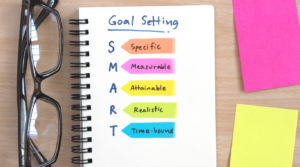Going to college can help develop a myriad of skills for your future career, though in other aspects, there may be some fumbling that you don’t realize until you graduate. Most of the knowledge gained through degree-specific courses is known as “hard skills.” This is the technical and specialized knowledge that you carry with you into your career. Some hard skills include coding, using medical equipment, engine diagnostics, and other skills used for specific jobs and taught in more formal ways.
There are also “soft skills” that are not as easy to teach in a classroom, like creative problem solving, communication, and teamwork. Group projects can be a great way to develop these skills. Even if you are not a fan of group projects, there are positives to take away from those experiences. According to U.S. News, soft skills are “traits that come naturally and are learned throughout your whole life.” Soft skills can be applied to any career path and job, and though they may look a little different in unique environments they all stem back to how you relate to others.
Thankfully, because they stay the same, you have plenty of time to work on and improve your soft skills. You may already be putting in the work without even knowing it! Here are some soft skills employers are looking for and how you are (or can) strengthen them while in college.
Communication
 There is said to be an art to talking to people and making connections. Communications as a soft skill set includes written communication, nonverbal communication, small talk, active listening, public speaking, and giving and receiving feedback. These are used every day and will get you far in life. Communication is effortless for some, but most of us require some sort of practice at these skills to help improve them or keep them fresh.
There is said to be an art to talking to people and making connections. Communications as a soft skill set includes written communication, nonverbal communication, small talk, active listening, public speaking, and giving and receiving feedback. These are used every day and will get you far in life. Communication is effortless for some, but most of us require some sort of practice at these skills to help improve them or keep them fresh.
There are so many ways college students can strengthen their communication skills. Most classes will have you giving presentations, writing papers, and demonstrating what you’ve learned to your professor and fellow students. If you are looking for more enjoyable ways to work on your communication skills, clubs and organizations are also a fantastic route. Maybe you’re really interested in working with other students through tutoring or in student government. Maybe you want to spend your spare time spreading laughter, in which finding an outlet for standup comedy or improv may be a way to go. Communication skills are golden, and you are the master of your own destiny.
Creative Problem Solving
Problems that need solutions arise daily, and as technology improves, sometimes you need to think outside of the box to find a solution that will work. Creative problem solving involves a lot of different processes because there are so many ways to solve a problem. Skills such as experimentation, imagination, brainstorming, and critical thinking are included in creative problem solving.

If you like puzzles, this may be amongst the easiest soft skills to practice. Whether you are a fan of more group-related activities such as escape rooms, or you’d rather chill out and play some video games, there are problem solving activities all around you.
If you want to highlight your problem-solving skills, practice talking about them using the STAR method. STAR stands for Situation, Task, Action, and Result. Following these steps, you would give context to the issue (Situation), explain what you needed to do (Task), how you went about doing what needed to be done (Action), and what the outcome of the issue was (Result). Talking about your problem-solving skills and creativity in an interview will make you a star, just don’t undermine your achievements.
Teamwork, Collaboration, and Delegation
 Most people have heard the adage “Teamwork makes the dream work.” Teamwork is an essential part of working with people inside your team, department, or organization. Work is rarely limited to your immediate team. Collaboration refers to that connection with others that occurs on projects. While delegation may seem like a leadership-level skill, it can be done at any level, and it just helps make the workload of each team member a bit easier.
Most people have heard the adage “Teamwork makes the dream work.” Teamwork is an essential part of working with people inside your team, department, or organization. Work is rarely limited to your immediate team. Collaboration refers to that connection with others that occurs on projects. While delegation may seem like a leadership-level skill, it can be done at any level, and it just helps make the workload of each team member a bit easier.
Group projects, even nightmare ones, are great for learning the ins and outs of teamwork, collaboration, and delegation. If you are someone who dreads group projects, teamwork can be found in other places, like intramural sports. Unlike collegiate-level sports, these allow more breathing room and the ability to have fun and join a team of like-minded students. Outside of group projects, work experience and clubs may be the best ways to strengthen your delegation skills. It takes a team to put on campus events, and if you can find your spot in putting something to that caliber together, it will work out to your advantage when it’s time for job interviews.
Growth Mindset and Goal Setting
The desire to grow and improve is something that does wonders for any individual. Having a growth mindset may seem easy, but sometimes setting goals is the real struggle. A good guideline to follow for making goals is to use the mnemonic SMART. SMART Goals are Specific, Measurable, Attainable, Relevant, and Time-Sensitive.

These are goals that you could easily add to your daily life, your academic goals, or even to help aid your growth mindset. Maybe your goal is to cook 30 new dishes throughout the semester, or to write 1,500 words daily on your big essay project. Goals are whatever you want them to be. Having goals is a good way to show employers that you are motivated and driven to complete things that improve your life. Achieving goals can show off your growth mindset, especially if it’s a goal that helps you incorporate new things into your life. Not every goal has to be something big. Small goals could build up to be larger goals, or they can stay simple.
Emotional Intelligence
 Emotional intelligence may be the most challenging to work on, but is the most important to learn. Emotional intelligence refers to your ability to understand your emotions, have empathy for those around you, connect with people, and act with compassion. It is also in high demand. According to Top Resume, 75% of employers are more likely to promote an employee with a higher emotional quotient and 71% value emotional intelligence over IQ.
Emotional intelligence may be the most challenging to work on, but is the most important to learn. Emotional intelligence refers to your ability to understand your emotions, have empathy for those around you, connect with people, and act with compassion. It is also in high demand. According to Top Resume, 75% of employers are more likely to promote an employee with a higher emotional quotient and 71% value emotional intelligence over IQ.
How do you build emotional intelligence? The simplest way may be to start journaling. By recording your own thoughts and feelings, you are developing your ability to understand your own emotions and then it can be easier to pick up on the emotions of others. Another way to start the process may be to go to a counseling session at your campus’s student health area (most of them have mental health aid available). You can talk to people more and develop empathy by practicing some of the communication skills we discussed earlier, such as active listening.
Adaptability
 No matter where you were on your educational journey when COVID happened, you probably know something about adaptability. The switch from in-person to online classes created challenges that schools, and students, were unprepared for. How much do you lean into adaptability in your everyday life? Things change all the time and adaptability is our capacity to go with the flow and take those changes head-on. Adaptability may be one of the biggest soft skills necessary in an ever-changing world.
No matter where you were on your educational journey when COVID happened, you probably know something about adaptability. The switch from in-person to online classes created challenges that schools, and students, were unprepared for. How much do you lean into adaptability in your everyday life? Things change all the time and adaptability is our capacity to go with the flow and take those changes head-on. Adaptability may be one of the biggest soft skills necessary in an ever-changing world.
Sometimes to work on adaptability, you may have to reach outside your comfort zone and do things that are unfamiliar or try new things you never imagined. Your ability to work through those changes and try new things is a great way to work on adaptability. You don’t even have to be good at the new skills, but demonstrating that you are willing to take on new challenges and adapt to new scenarios is incredibly beneficial to your future career.
Time Management
 We all have the same 24 hours each day, but we all manage our time differently. Whether you plan out every minute of your day, or you go with the flow, time management is an essential soft skill to help you excel. It doesn’t have to refer to having a set schedule, but managing your time by making the most of your day and having a routine can help everything flow smoothly in the stream of time.
We all have the same 24 hours each day, but we all manage our time differently. Whether you plan out every minute of your day, or you go with the flow, time management is an essential soft skill to help you excel. It doesn’t have to refer to having a set schedule, but managing your time by making the most of your day and having a routine can help everything flow smoothly in the stream of time.
If you are one of the countless college students who frequently procrastinate, a good place to start with time management is to plan out when you study for a class, work on an essay, or even eat your meals. Tackling a big project little by little can help you develop great skills for jobs that have deadlines looming overhead.
Analysis and Critical Thinking
 Analysis involves breaking down complex information into more understandable pieces. Critical thinking is evaluating information in the context of the bigger picture to interpret how they interact. Critical thinking often comes into play in questions on an assignment to look at things through a wider lens. Analysis may be used more often with data tables and science fields, but analysis can be used by anyone. Most jobs will have you analyze the data and then make opinions or perspectives from that data.
Analysis involves breaking down complex information into more understandable pieces. Critical thinking is evaluating information in the context of the bigger picture to interpret how they interact. Critical thinking often comes into play in questions on an assignment to look at things through a wider lens. Analysis may be used more often with data tables and science fields, but analysis can be used by anyone. Most jobs will have you analyze the data and then make opinions or perspectives from that data.
While they have their differences, it can be easy to practice analysis and critical thinking at the same time. Analysis can be seen as part of the critical thinking process, according to The Peak Performance Center. As artificial intelligence improves, it may be necessary to use analysis and critical thinking skills for anything you see online. This can also be a fun process to see what is real and what is fake when it comes to online media.
Motivation
 “What Drives You?” is probably a question you’ve heard at least once in your life. It’s likely you have heard it in a fitness advertisement, or maybe someone has asked you that question. Motivation is a skill that can be broken down into two sections: intrinsic and extrinsic. Intrinsic motivation comes from inside you. Extrinsic motivation comes from outside sources and can often involve praise, rewards, or recognition.
“What Drives You?” is probably a question you’ve heard at least once in your life. It’s likely you have heard it in a fitness advertisement, or maybe someone has asked you that question. Motivation is a skill that can be broken down into two sections: intrinsic and extrinsic. Intrinsic motivation comes from inside you. Extrinsic motivation comes from outside sources and can often involve praise, rewards, or recognition.
If you’re wondering how to practice or build your motivation soft skills, you are not alone – motivation can be tricky. Some parts of motivation tie into what was mentioned earlier about goal setting. Other parts involve what happens after your goal is reached. Atlassian suggests that taking time to recognize your achievements can elevate levels of dopamine, which is known as the “feel-good” hormone. Feeling good about a project makes it easier to start another project.
Work Ethics
Punctuality, reliability, professionalism, and self-discipline are good habits to grow in your work portfolio. They all fall under the soft skill category of work ethics. While they may not seem to matter much in college, it is helpful to get started on these skills early to ingrain them in your mind. And for the most part, they aren’t that hard to practice. Punctuality includes basic tasks such as turning in your assignments and arriving to class on time. It ties in well with the soft skill of time management in that way. Reliability ties in well with communications because a reliable person usually communicates their ideas and process well, as well as makes sure the work is done to their own personal standard.

Self-discipline helps you gain other soft skills. It ties in with motivation to make sure you get done what you personally want to get done. Whether that be learning soft skills or finishing your personal projects, self-discipline is a great habit to start.
Professionalism is how you act in the workplace. While it can look very different (professionalism for teachers and lawyers are not the same), it revolves around conducting yourself with good work ethics and relying a lot on the other soft skills we have mentioned. The easiest way to find out what professionalism looks like in your desired career field is to shadow or interview someone who is currently working in that field.
Closing Thoughts
Soft skills are building blocks you can use to lay a strong foundation for your career path and future. It doesn’t matter which order you choose to strengthen them, or if you choose to strengthen one over another. All that matters is that you strengthen your soft skills as much as you strengthen the hard skills needed to get the job and excel in your career. These soft skills speak loudly about who you are as a person and why you will prosper at your job. Let them shine through!

 Your FAFSA Submission Summary is going to include useful information you’ll need to make an informed decision about financial aid, including your estimated eligibility for the Pell Grant and federal student loans, your Student Aid Index (SAI), FAFSA form answers, school information, if you have been selected for verification, and next steps.
Your FAFSA Submission Summary is going to include useful information you’ll need to make an informed decision about financial aid, including your estimated eligibility for the Pell Grant and federal student loans, your Student Aid Index (SAI), FAFSA form answers, school information, if you have been selected for verification, and next steps. You can add and remove schools from your FAFSA while reviewing your Summary. This is an incredibly important tool for anyone who has changed their mind about a potential school or applied to a few extra institutions since filing.
You can add and remove schools from your FAFSA while reviewing your Summary. This is an incredibly important tool for anyone who has changed their mind about a potential school or applied to a few extra institutions since filing.




